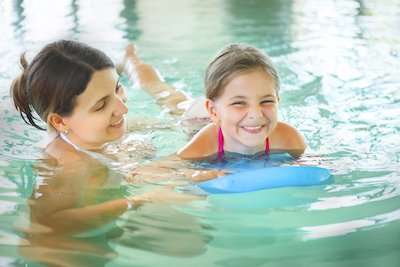Summer may be almost over, but you can't forget about water safety
Drowning remains one of the leading causes of death for children. Florida is known for beautiful weather year-round, which unfortunately means that the danger of drowning is ever present. Unfortunately, Florida leads the country in drowning deaths for children between one and four years old. As kids head back to school for the new school year, it is easy to overlook or become complacent about this ever present danger.
Here some way to keep your kids safe near the water.
- Never leave small children alone or in the care of other young children while in or around any source of water (pool, kiddie pool, bathtub, bucket of water, lake, stream, pond, irrigation ditches).
- Infants, toddlers, and weak swimmers should always have a supervising adult within arm’s reach.
- Older children and stronger swimmers should be supervised by an undistracted adult.
- All pools, including temporary and elevated pools, should be surrounded with fencing at least four feet high on all four sides with a self-closing and latching gate. The side of a house is not a good substitute for a fence, unless there are no windows or doors.
- Consider the use of pool alarms or pool covers when they are not in use.
- Parents and caregivers should learn CPR.
- Never use swim aids (“swimmies” or inflatable arm bands) as a substitute for a life jacket.
- All children should wear a life jacket while riding in a boat. Weak swimmers and young children should also wear a life jacket when at the water’s edge including while on the pier.
- Whenever possible, choose a swimming location that has a lifeguard present.
- Talk about the dangers of alcohol and drugs increasing drowning risks with teenagers.
- Adults should not consume alcohol or use drugs (legal or illegal) that may interfere with their ability to supervise the children while they are swimming.
- Enforce safety rules (no running, no pushing, no dunking others underwater).
- Children should not use hot tubs or spas. Not only is this a drowning risk, children are at increased risk due to overheating.
- Do not allow children to play with pool drain covers or systems.
But my child had swimming lessons…
 Swimming lessons are not considered a way to prevent drowning in very young children. That being said, the American Academy of Pediatrics (AAP) strongly recommends swimming lessons for children four years of age and older. Several years ago, the AAP changed its position on swimming lessons for children ages one to four years old since new evidence has shown in several small studies that the risk of drowning may be lower if a young child has had formal swimming lessons. There are limitations to these studies, so pediatricians have stopped short of recommending mandatory lessons for all children between one and four years of age.
Swimming lessons are not considered a way to prevent drowning in very young children. That being said, the American Academy of Pediatrics (AAP) strongly recommends swimming lessons for children four years of age and older. Several years ago, the AAP changed its position on swimming lessons for children ages one to four years old since new evidence has shown in several small studies that the risk of drowning may be lower if a young child has had formal swimming lessons. There are limitations to these studies, so pediatricians have stopped short of recommending mandatory lessons for all children between one and four years of age.
Parents should decide in conjunction with their pediatrician whether to enroll an individual child in swim lessons based on the child’s frequency of exposure to water, emotional development, physical abilities, and certain health concerns related to pool water infections and pool chemicals. When choosing a swimming lesson program, ensure that they adhere to the guidelines established by the national YMCA. Remember, swimming lessons are not a substitute for adult supervision!
What about infant water survival classes?
I’m sure all of you have seen the videos of infants and toddlers floating in the water. The internet is full of anecdotal survival stories where these small children have “saved themselves.” Unfortunately, there have been no studies that have shown any difference in the rates of drowning despite these classes for this age group. The American Academy of Pediatrics does not recommend formal water safety programs for children younger than one year of age.
Now go out and enjoy all of the water fun in Florida safely!






